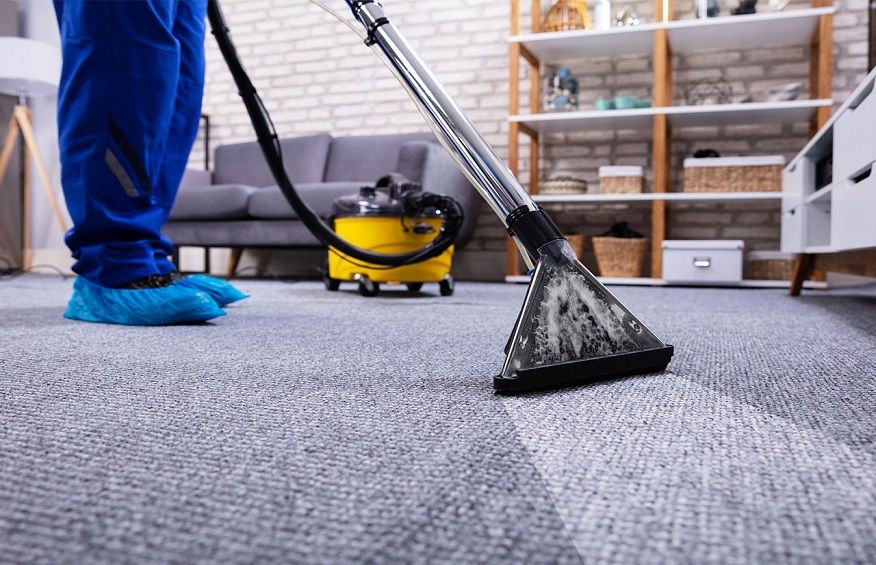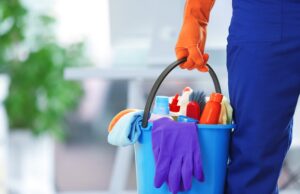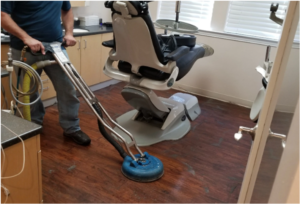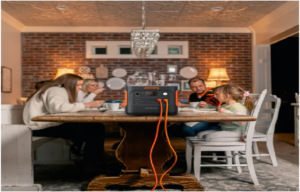Developing Client Loyalty in the Commercial Cleaning Industry
4 min read
In the competitive landscape of commercial cleaning services, acquiring new clients is only the first step. The real challenge lies in retaining them, and that’s where after-service care plays a pivotal role. This article delves into the strategies and practices that janitorial service New York can adopt to not only meet but exceed customer expectations, fostering lasting relationships that go beyond the immediate cleanup.
The Landscape of After-Service Care
Defining After-Service Care:
- Post-Cleaning Engagement: After-service care extends the relationship with customers beyond the completion of a cleaning job.
- Holistic Customer Experience: It encompasses efforts to ensure customer satisfaction, address concerns, and create a positive overall experience.
The Significance of Customer Retention:
- Financial Impact: Retaining customers is cost-effective compared to acquiring new ones. It contributes to the long-term financial health of janitorial service businesses.
- Referral Potential: Satisfied customers become advocates, referring the janitorial service to others, thereby expanding the customer base.
Personalized Communication Strategies
Tailored Follow-Up:
- Post-Service Check-In: After each cleaning, initiate a follow-up to ensure satisfaction and address any immediate concerns.
- Personalized Communication: Tailor communication to each client, acknowledging specific needs or preferences discussed during the initial consultation.
Scheduled Maintenance Planning:
- Forward-Looking Approach: Propose a scheduled maintenance plan based on the client’s unique requirements and budget.
- Long-Term Commitment: Demonstrating a commitment to ongoing service builds trust and strengthens the client-provider relationship.
Proactive Issue Resolution
Rapid Response Mechanism:
- 24/7 Availability: Establish a responsive customer support system that operates round the clock to address urgent issues.
- Clear Communication: Clearly communicate the steps taken to resolve issues, keeping clients informed throughout the process.
Periodic Quality Checks:
- Scheduled Inspections: Conduct periodic quality checks to ensure the continued satisfaction of clients.
- Proactive Problem Solving: Anticipate potential issues and address them before they become major concerns, showcasing a proactive approach to customer care.
Education and Empowerment
Cleaning Tips and Recommendations:
- Educational Resources: Provide clients with useful cleaning tips and recommendations to help them maintain a clean environment between professional cleanings.
- Product Recommendations: Suggest suitable cleaning products and techniques that align with the client’s specific needs.
Workshops and Training Sessions:
- Hands-On Learning: Offer workshops or training sessions on effective cleaning practices, empowering clients to contribute to the upkeep of their spaces.
- Customized Training: Tailor educational offerings to the client’s industry or the unique demands of their commercial space.
Loyalty Programs and Incentives
Exclusive Discounts and Offers:
- Special Packages: Design loyalty programs with exclusive discounts or bundled services for long-term clients.
- Referral Rewards: Implement referral programs that reward clients for bringing in new business, fostering a sense of partnership.
Recognition and Appreciation:
- Client Spotlights: Showcase long-term clients through testimonials or case studies, publicly acknowledging their loyalty.
- Anniversary Celebrations: Recognize the anniversary of the client’s partnership with the janitorial service, celebrating milestones together.
Technological Integration
Customer Portal Access:
- Transparency: Provide clients with access to a secure customer portal where they can view service history, invoices, and upcoming appointments.
- Feedback Mechanism: Integrate a feedback system within the portal, allowing clients to share their experiences and suggestions.
Automated Appointment Reminders:
- Efficient Communication: Implement automated reminders for upcoming cleaning appointments, ensuring that clients are well-prepared.
- Flexibility: Allow clients to reschedule or customize their service appointments through user-friendly online platforms.
Sustainability Initiatives
Green Cleaning Recommendations:
- Environmentally Conscious Solutions: Propose green cleaning options and environmentally friendly practices that align with the client’s sustainability goals.
- Certifications and Compliance: Highlight certifications or compliance with eco-friendly cleaning standards, showcasing a commitment to environmental responsibility.
Energy-Efficient Cleaning Practices:
- Smart Equipment Usage: Invest in energy-efficient cleaning equipment, contributing to sustainability efforts and potentially reducing overall service costs.
- Waste Management Solutions: Implement sustainable waste management practices, further aligning with eco-conscious clients.
Customer Surveys and Feedback
Periodic Surveys:
- Gauging Satisfaction: Conduct periodic surveys to gauge customer satisfaction levels and identify areas for improvement.
- Anonymous Feedback: Allow clients to provide anonymous feedback, encouraging honest and constructive responses.
Continuous Improvement Initiatives:
- Feedback Analysis: Analyze customer feedback to identify trends and patterns, informing continuous improvement initiatives.
- Actionable Responses: Act upon feedback promptly, demonstrating a commitment to addressing client concerns and enhancing service quality.
Incorporating Client Suggestions
Client-Driven Solutions:
- Open Channels of Communication: Encourage clients to share their suggestions for improvement openly.
- Collaborative Problem-Solving: Collaborate with clients to implement solutions based on their unique insights and preferences.
Flexibility and Adaptability:
- Tailoring Services: Be flexible in tailoring services to accommodate evolving client needs or changes in the nature of their commercial spaces.
- Adapting to Growth: Support clients during periods of growth or downsizing, adjusting cleaning plans accordingly.
Professional Development Opportunities
Training for Client Staff:
- Cleaning Best Practices: Offer training sessions for client staff on basic cleaning best practices, enhancing collaboration between the janitorial service and in-house maintenance teams.
- Equipment Familiarization: Familiarize client staff with the janitorial service’s cleaning equipment and protocols for seamless integration.
Industry-Specific Workshops:
- Specialized Insights: Provide industry-specific workshops or training to clients in sectors with unique cleaning challenges.
- Knowledge Sharing: Share insights and best practices that can enhance the overall cleanliness and hygiene of specific commercial environments.
Conclusion
As janitorial service providers in New York navigate the dynamic landscape of commercial cleaning, the focus on after-service care emerges as a linchpin for sustained success. Beyond the immediate cleanup, fostering lasting relationships with clients requires a multifaceted approach that encompasses personalized communication, proactive issue resolution, and a commitment to continuous improvement. By adopting strategies that go beyond mere transactions, janitorial services can position themselves not just as providers of cleanliness but as trusted partners in the long-term well-being and success of their clients’ commercial spaces.







